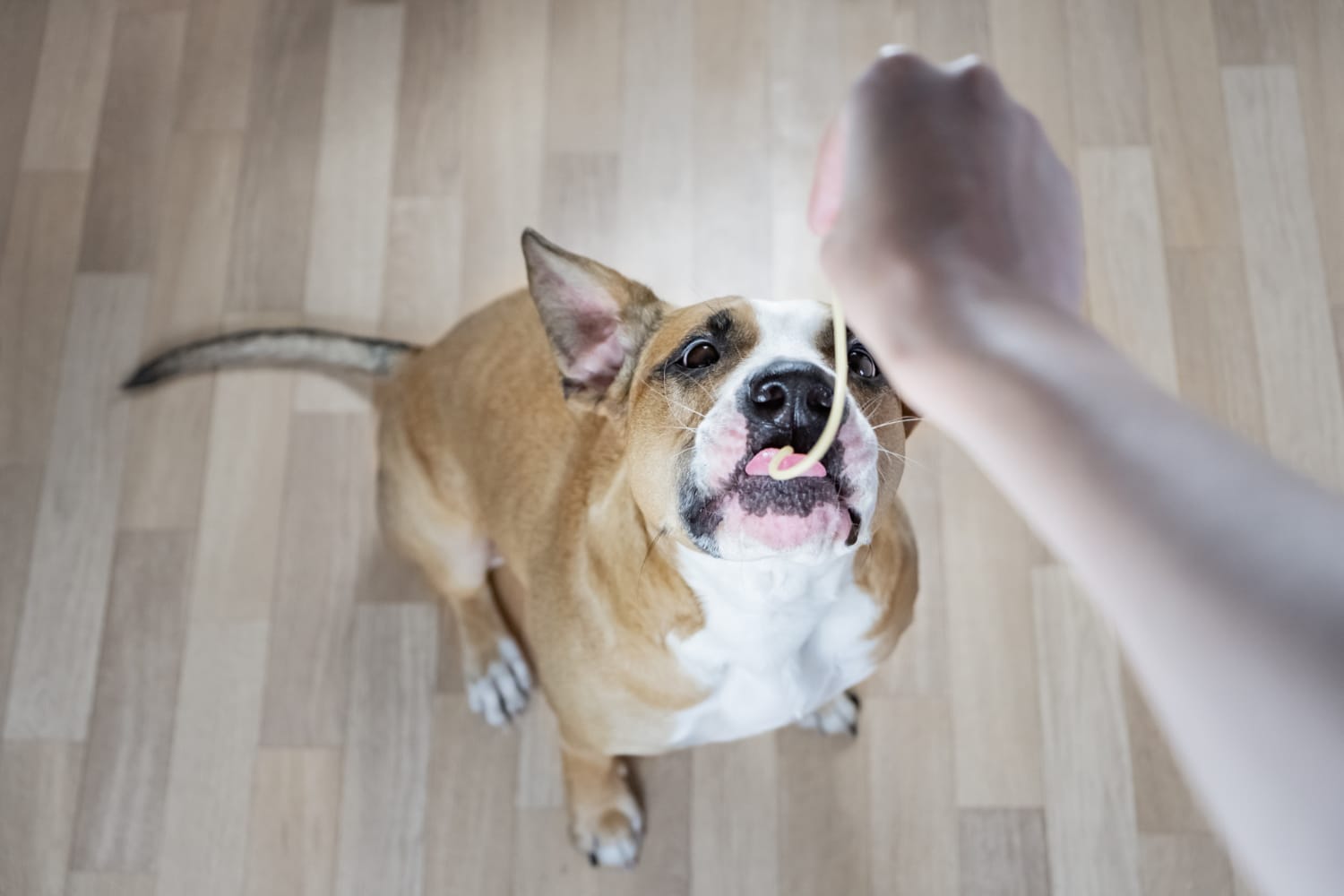There is a consensus that giving human food to dogs and other animals is a bad idea. However, some food items can be safe for dogs if given in moderate quantities. This is good news for dog owners who want to share some of their food with their pups and enjoy bonding with their fur babies this way.
Can Dogs Eat Pasta Noodles?
It has always been tempting to share different kinds of human food with dogs, mainly because it’s cute to see dogs munching on the foodstuffs we find tasty. For the most part, most commercial or processed food items on the market are not healthy for dogs.
Human food tends to contain unsafe ingredients for dogs, such as too much salt, too much sugar and enhances like xylitol that is downright poisonous to them. So, if you have ever wondered why we can’t give our dogs any human food, this is the main reason – human food can potentially end their lives.
The majority of veterinarians will not raise the alarm about dogs eating cooked pasta. It’s probably because most dog food in the market has wheat flour, and pasta noodles are made from durum wheat or some other type of wheat and water. Based on the carbohydrate composition, there’s no difference between commercial dog food and pasta – the binding material, the wheat flour, exists in both food products.
Not all pasta noodles are made the same way, and sometimes, manufacturers add tidbits and portions of other ingredients to their pasta products.
These additional ingredients may harm dogs, so it’s essential to find out first if your dog is not allergic to the brand of pasta that you have at home before doing regular feeding with it.
The best method is to obtain a small portion of the cooked pasta and feeding it to your dog. Observe your dog first to see if there are any allergic reactions. If there are no allergic reactions, that brand of pasta is probably safe to give to your dog later on.
However, your must not be complacent – you have to check if there are no reactions in the preceding days to ensure that your dog remains healthy even with the slight shift in the diet. This because dogs have wildly different anatomy, and a dog’s metabolism is vastly different from human metabolism. Just take our sodium tolerance. Humans can consume high amounts of sodium for years before taking any damage. A dog that has been feed too much salty human food can be in mortal danger.
On top of the pasta brand that you would like to give your dog, care should also be taken when you add a bit of sauce to the pasta. Be wary of salt, and when in doubt, skip the salt altogether. Dogs appreciate food differently, anyway. They don’t evaluate food the same way humans do – they want to bond with you and get fed if they’re lucky enough.
Is Pasta Good for Dogs every day?
Despite being a non-toxic food product for dogs, vets do not recommend giving dogs pasta every day or all day, for that matter. Your dog should only get a moderate amount of cooked pasta (no sauce or extras) once a week.
Any more than this amount, and there is already a risk of your dog becoming overweight or obese. Excess weight in dogs can result in heart ailments and other organ issues. That means you have to keep your dog healthy by moderating the food intake.
We’re pretty sure that you have seen reports or videos of dogs and cats being overweight. They end up with oral issues, heart problems, liver ailments, and even kidney issues. The more a dog eats beyond its needs, the more there is a risk of permanent and potentially debilitating medical problems.
Again, the goal is portion control. If you can’t resist giving your dog a bit of pasta every day, be sure that it is always under a cup. The whole weekly serving we have been talking about will always be just one US cup of cooked pasta minus any sauce, herbs, spices, and most especially, salt. If you salt your pasta generously, you may want to wash off some of the sodium before giving the noodles to your dog.
Can I Give My Dog Pasta Instead of Rice?
Yes, you can give your dog pasta instead of rice if you want. Both steamed white rice and cooked pasta are safe for dogs. However, there are some important reminders when giving pasta to dogs.
Pasta is often served with extras like the sauce, often mixed with Italian herbs, cheeses, etc. While a bit of cheese is fine, dogs can react negatively to garlic. Also, there are issues with grain-free pasta. Grain-free pasta varieties are lovely for humans, but we cannot the same for our dogs.
Take note that pasta made with lentils and chickpeas can impact your dog’s heart. Should you be limited to buying this type of pasta, you have to reduce the amount of pasta that you give to your dog even more because you don’t want to end up harming its heart just because you want to give a treat.
Pasta can be given as an alternative snack to your dog, but this doesn’t mean that it offers the same benefits as rice. White rice and brown rice are given to dogs to alleviate gastrointestinal distress. Having an upset stomach is a sign that your dog may need an additional fiber boost in its diet.
Should you have pasta that is naturally high in fiber, it just might perform the same task as brown rice or white rice when fed to your dog. Otherwise, consider the pasta as an alternative snack, like other human foods that we occasionally give to our dogs just because they somewhat enjoy human food.

